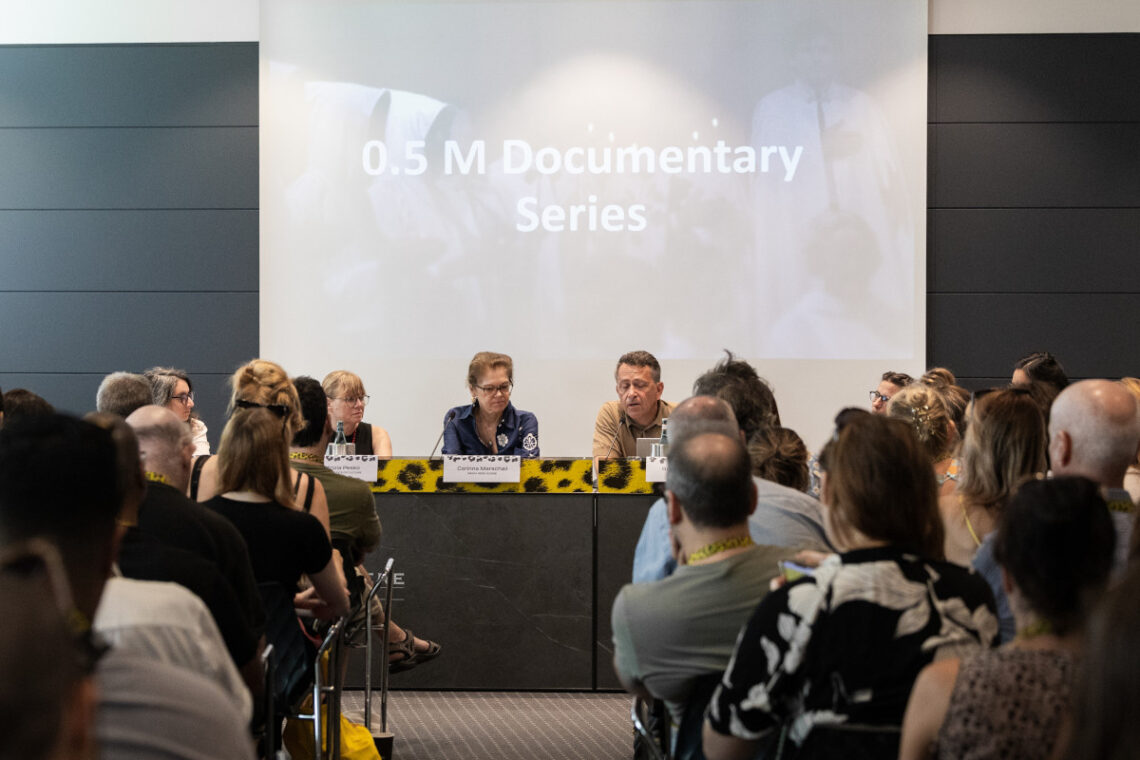Swiss cinema’s global ambitions: Navigating co-production opportunities
The prestige of Swiss co-productions
For Switzerland’s SRG SSR, the primary objective is to keep co-producers content, as highlighted by Gregory Catella at the Locarno Film Festival. “We benefit from the success and visibility,” he noted. “Our financial contribution isn’t substantial; it’s more about prestige. The films and minority co-productions that come to us aim for international recognition at festivals.”
During the panel on Switzerland and co-financing opportunities for independent films, Catella encouraged participants to apply for the Audiovisual Pact, which now boasts 34 million CHF ($39.2 million) in funding, an increase of 1.5 million CHF. “The goal of this increase is not to produce more films or series but to better finance our co-productions. Costs are rising,” he explained.
Funding opportunities and eligibility
The Audiovisual Pact offers up to 10 million CHF ($11.5 million) for feature films and 2 million CHF ($2.3 million) for animation. While primarily aimed at Swiss co-productions, international co-producers can also participate, especially in documentary series for broadcast and platforms.
Potential applicants should start with the Federal Office of Culture, which provides selective and automatic funds based on theatrical releases and festival participation of previous films. The Film Investment Refund Switzerland is also available, though it has limitations.
“We can only co-produce with countries that have a treaty with us,” noted Patrizia Pesko. Separate treaties exist with Austria, Germany, Canada, France, the French Community of Belgium, Italy, Luxembourg, and Mexico. “You are free to work with Japan or China, but it can’t be acknowledged as an official co-production from the Swiss state,” she added.
Flexibility with Media Desk Suisse
Media Desk Suisse offers more flexibility. “There’s a possibility of a co-production with Switzerland according to an agreement with a third partner,” explained Corinna Marschall. ”If you are from Kazakhstan and have a co-production agreement with France, and France has a co-production agreement with Switzerland, that’s the triangle of co-producers.”
Media Desk Suisse provides development funding but no production support, with a total development budget of 1.2 million CHF ($1.4 million) per year for all genres combined. This funding typically supports around 23 projects annually, focusing on the end of the development phase. The nationality of the author is not important, and there is no obligation for a theatrical release.
Supporting emerging voices
The Migros Culture Percentage Story Lab aims to support all audiovisual narrative formats in the very early stages of development, including cross-media projects and games. Tenzin Roder emphasized the importance of the anonymized jury process and offering coaching and mentoring opportunities. “In a small country like Switzerland, where industry players are relatively well-known, it’s crucial to ensure that diverse voices are heard,” she said.
The lab provides tailored support, particularly valuable for emerging talents new to the industry. “The hurdles in filmmaking are high, and access is challenging. With our coaching offerings, we aim to contribute to the strengthening and professionalization of these new voices,” Roder added.
Visions Sud Est: A focus on low production capacity countries
Founded in 2005, Visions Sud Est has supported over 200 projects, including “All We Imagine as Light,” “Pepe,” and “Intercepted.” “The aim is to support films for theatrical distribution,” explained Madeline Robert. In return for the support, all Swiss rights go to the fund. The director and the applicant production company must be from one of the eligible countries, and filming must occur in the local language.
Visions Sud Est supports films at both production and post-production stages, with a maximum of 50,000 CHF ($57,670) for fiction films and 20,000 CHF ($23,000) for post-production. The selection process takes 16 weeks. “It’s quite a competitive fund, so it’s important not to submit too early and be ready for production,” Robert advised.
The importance of timing and readiness
Robert emphasized the importance of applying at the right stage of the project. “The most common mistake is to apply too early. As it is only possible to apply once to each stage of support, it’s important to apply when the script is completed at the production stage and when a rough cut of the entire film is done at the post-production stage.”
Creating spaces for experimentation
Roder highlighted the importance of creating environments that allow for experimentation and exploration, especially in a competitive landscape. “We create a space where stories can emerge and take shape,” she said. This approach is crucial for fostering new voices and ensuring that diverse perspectives are represented in the film industry.
Switzerland offers a range of funding opportunities and support mechanisms for co-productions, with a focus on international recognition and high artistic and production value. By navigating these opportunities effectively, filmmakers can achieve global success and contribute to the vibrant landscape of Swiss cinema.

 Italian
Italian







